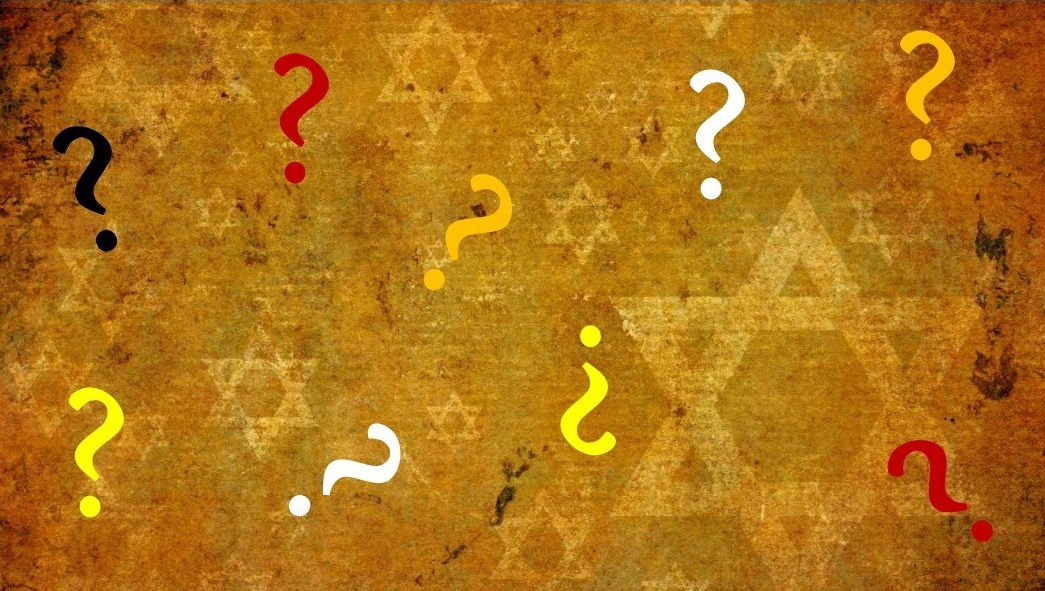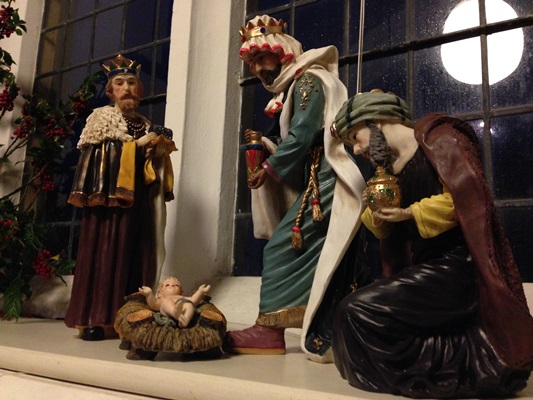
Sermon preached on the Second Sunday of Epiphany based on the following readings John 1:29-42 and 1 Corinthians 1:1-9
May I speak and may you hear through the Grace of God; Father, Son and Holy Spirit. Amen
‘Come and see, come and see,’ was a request I often got from one of the children, to go with them and admire what they had been drawing or chalking on the easel. I’d learned not to declare, ‘what a wonderful elephant’ when it turned out to be a fire engine; risking disappointment that their efforts were unrecognisable. Instead, a few tentative enquiries and invitation to tell me all about what each bit represented, to listen to what I was looking at helped me see what was being revealed right in front of my eyes.
Our gospel passage this morning is another epiphany moment as Jesus begins his calling of the disciples, with an invitation, not only to come and see where he was staying, but to come and listen to what he had to say, so that his identity would be recognised and understood
Just a few verses before we had been given by John the most beautiful description of Jesus as the Word made flesh. He is God revealed to humans – in ourselves the expression of God – so that we might see him and believe. The question is – what do we see and what do we believe?
But first, let’s return to what John, the writer of the gospel, saw and believed on that first encounter with Jesus. Do we actually know that John was there? The consensus among theologians is that here was a group of Galilean fishermen, from a community around Bethsaida, which actually means ‘Fishtown,’ and that along with brothers Simon and Andrew were the sons of Zebedee, James and John.
Andrew is a disciple of John the Baptist along with one other, who are eyewitnesses to John’s testimony and affirmation of who Jesus was revealed to be through his baptism and who are standing with him when he declares for the second time that ‘Here is the Lamb of God.’
John the Baptist gives Jesus this new title that does not appear elsewhere in the Gospels. Yet it would have had great significance for those listening. A sacrificial lamb, pure of all blemishes, innocent and meek, and it is worth reflecting on this title as an image of the meekness of Jesus who, even in the fiery, apocalyptic book of Revelation, believed to have been authored by John the Gospel writer as well, still appears as a lamb ‘standing as if it has been slaughtered.’
John the shadowy, beloved disciple does not reveal himself as the other disciple with Andrew, but the visionary quality of the language points to him being present as the other eyewitness. However, it is Andrew who after accepting Jesus’ invitation to ‘come and see’ and spending time listening to what Jesus had to say makes the boldest declaration to his brother, Simon. ‘We have found the Messiah, the anointed or holy one,’ the prophesied promised deliverer of the Jewish nation and saviour of humankind. It is significant that Simon’s brother makes this confession early on, as later, the retitled Peter will make the same bold statement having witnessed several miracles and declaring his continuing allegiance to Jesus’ mission.
For John the Baptist he is the Son of God, for Andrew the Messiah, for John the Evangelist the Lamb of God, for Peter the Holy One. Each of them have received the invitation to ‘come and see,’ and each of them sees Jesus as something different. So, what is it about Jesus that each of us who receive that same invitation actually see?
The invitation to get to know Jesus is a personal one. It starts at a different time and in different circumstances for each of us. Andrew and John were asked directly, ‘What are you looking for’ and their response was for a teacher, ‘Rabbi.’ They were looking for someone who could help them learn more about God and his purposes, as well as a guide to how they should live. How true is that for you?
Are you attracted by Jesus as a shepherd, a person who protects and leads people in the right direction, securing for them a place of safety and nourishment.
Or is it the angry Jesus, who rails against injustice and demands restitution and freedom from everything oppressive and unjust. Who values those with the least power as the most precious.
Perhaps, it’s the compassionate Jesus, whose healing power can work miracles and bring suffering to an end, who rejoices at the restoration to full life, yet weeps at the death of a loved one before offering hope for eternal peace and reunion.
Even maybe the Jesus who shares our tiredness and emotions, revealing himself to be fully human and capable of wanting to escape from life at times, to take stock and re-emerge refreshed and restored to carry on the work we have been given.
Whatever it is that makes us first accept that invitation to ‘come and see’ it is only the catalyst to get to know him better, to listen to what he has to say and to be confident to make that invitation available to others to come to know him better.
Despite the failings of the Corinthian church to be united in their understanding of God, Paul is positive when he reminds them that by accepting the invitation to get to know Jesus, they have been enriched in speech and knowledge, given spiritual gifts and strengthened so that they will be able to persevere until the day when they are fully united with Jesus. It is also addressed to ‘all those who in every place call on the name of our Lord Jesus Christ, both their Lord and ours.’
The Gospel of John was written to prove that Jesus Christ is the Son of God. As an eyewitness to the love and power displayed in the miracles of Jesus, John gives us an up-close and personal look at Christ’s identity. He shows us that Jesus, though fully God, came in the flesh to distinctly and accurately reveal God, and that Christ is the source of eternal life to all who believe in him.
Each of us is given that chance to take a close and personal look at Christ’s identity when we recognise the moment and respond to his invitation to ‘come and see.’ Whatever it is that attracted us to get to know the person of Jesus more, to listen to his words, to be moved by his actions there will be others out there waiting for that same invitation.
Let’s pray at their epiphany moment we are the ones to say to them ‘come and see’ for yourself.
Amen






